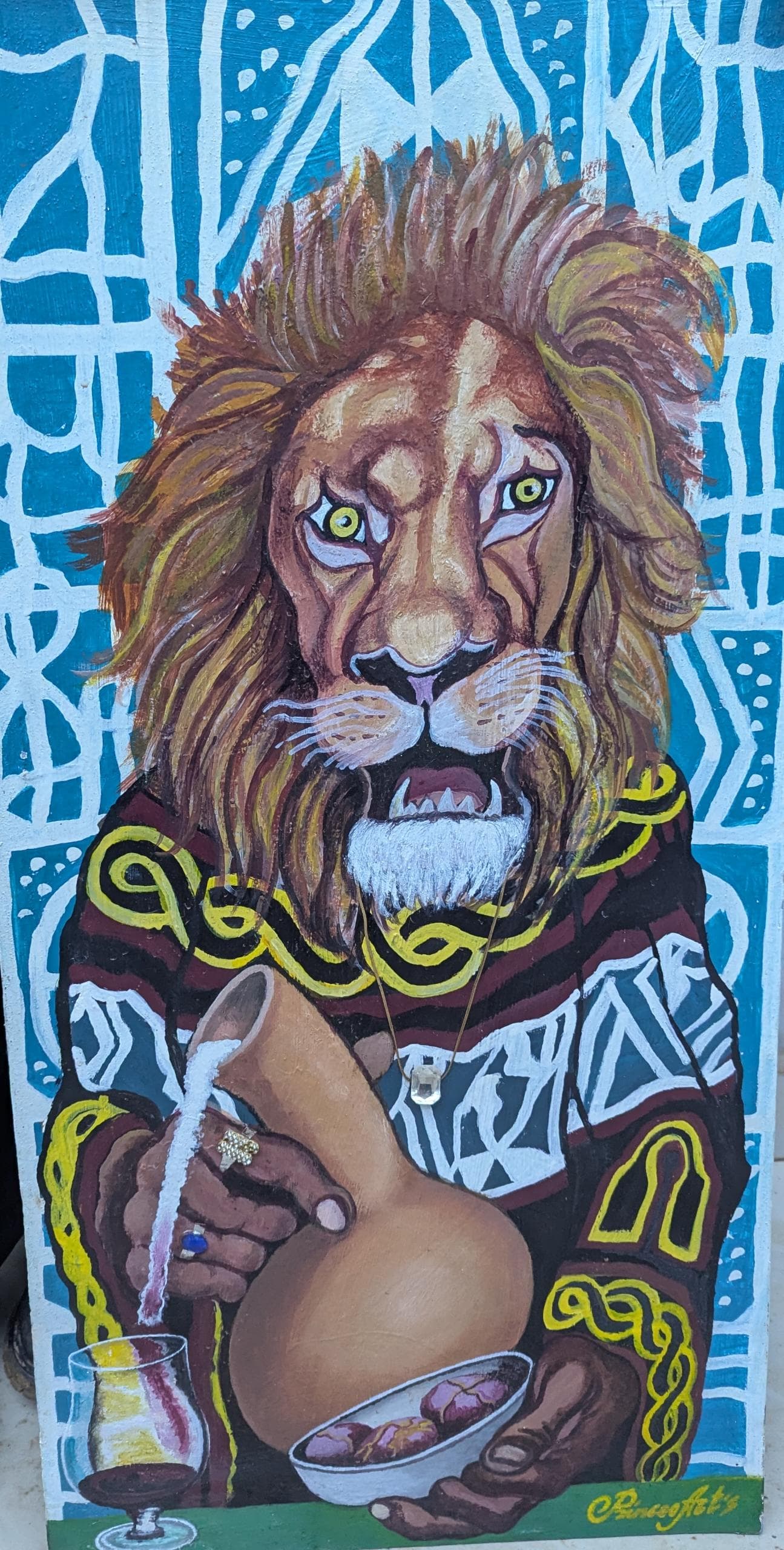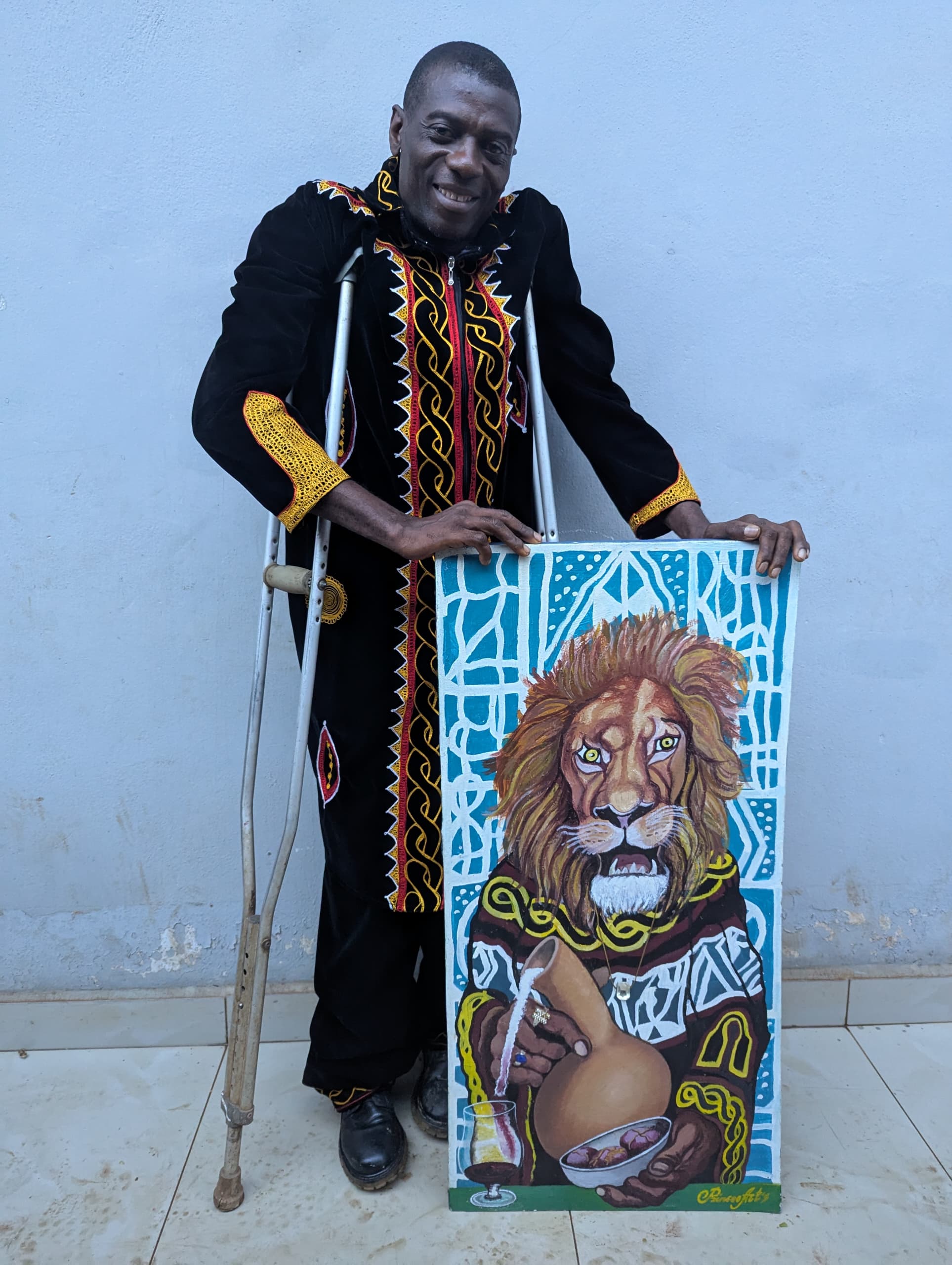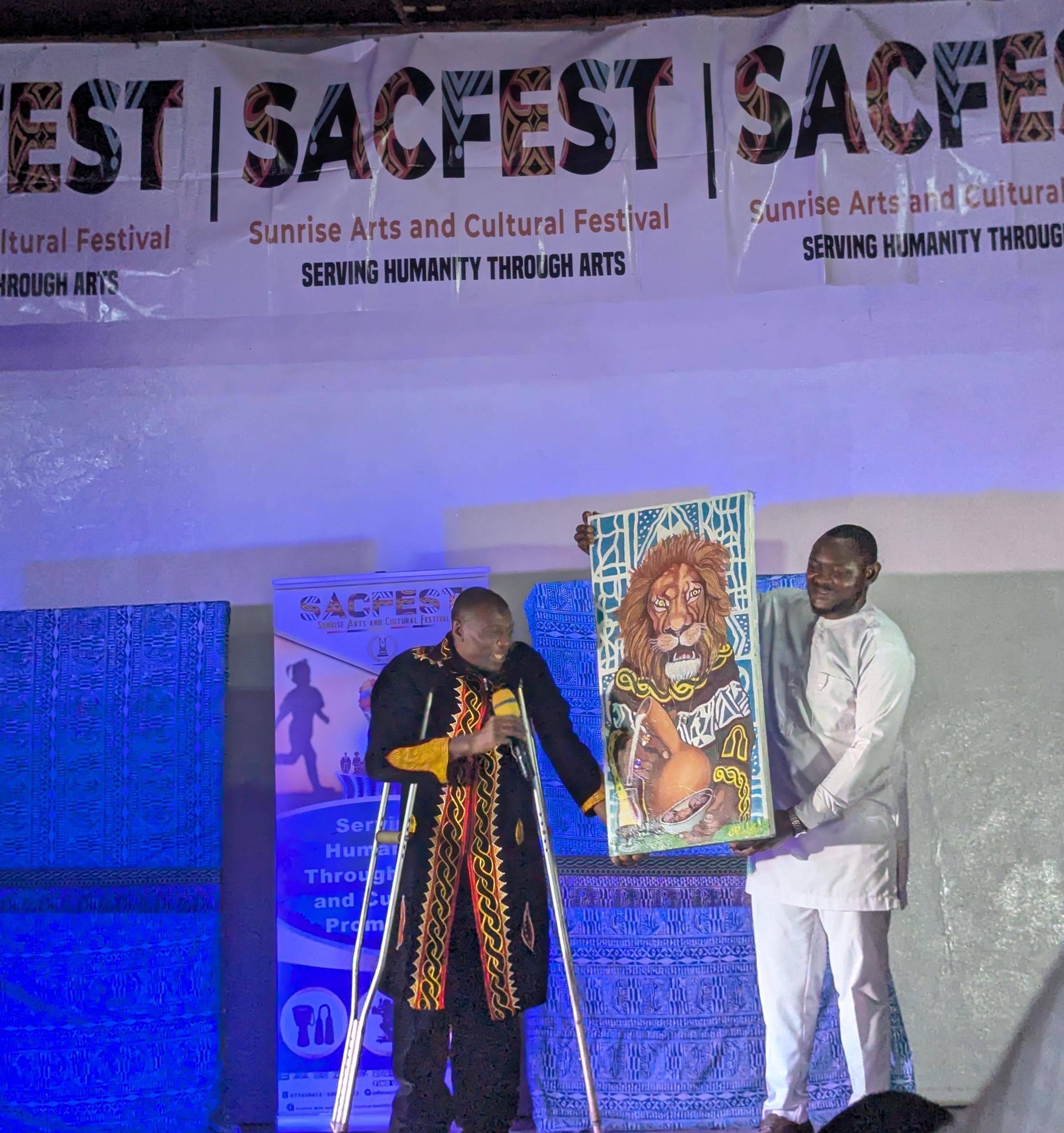Disability and Talent in North West Cameroon
On August 3rd, 2025, I attended the Sunrise Arts and Cultural Festival (SACFEST) in Bamenda, the chief town of the North West region of Cameroon. The highlight of the event for me was a captivating painting of a lion adorned in Atoghu fabric, holding a calabash of wine and kolanut representing our cultural roots. This artwork was created by Princely Nchamukong, a man living with a disability, who not only showcased his artistic talent but also delivered a riveting musical performance. His story challenges common stereotypes about disability and talent in our society. Princely Nchamukong's journey is a testament to the transformative power of art.
Initially discouraged by his family, who viewed his disability as a limitation, Princely found inspiration through a German woman who recognized his potential. Her support opened doors to education and self-expression, allowing him to explore his talents in painting, music, and even shoe repair. Art has served as a powerful tool for Princely, enabling him to assert his identity and share his narrative with the world. His painting of the lion symbolizes strength and resilience, while his music echoes themes of hope, love and empowerment. This duality of art as both personal expression and social commentary highlights the importance of recognizing and valuing the voices of individuals with disabilities. Societal views on disability often perpetuate stereotypes that limit opportunities for individuals like Princely. Many people still believe that those living with disabilities cannot lead fulfilling lives or contribute meaningfully to society.


Princely’s story challenges these misconceptions, illustrating that with the right support and education, individuals with disabilities can thrive and inspire others. He emphasizes that disability should not be equated with inability. His call for parents to invest in their children's education reflects a broader societal need to shift perspectives on disability. By advocating for inclusion and support, Princely is not only empowering himself but also encouraging others to embrace their potential. Princely's experiences shed light on the societal challenges faced by people living with disabilities in Cameroon.
"In Cameroon, particularly in Bamenda, while the government has made efforts toward inclusivity, much more needs to be done to ensure equality for people with disabilities. The ongoing Anglophone crisis exacerbates these challenges, making it difficult for individuals with disabilities, especially those with families, to make ends meet and provide for their children." He discusses the stigma surrounding romantic relationships, the disparities in treatment when using public transport, and the limitations imposed by societal perceptions.
"There is a prevalent belief that a disabled man cannot genuinely fall in love with a beautiful woman, often attributing such relationships to sorcery or charm. Furthermore, people with disabilities frequently experience discrimination, such as being charged higher taxi fares compared to their able-bodied counterparts. Social stigma extends to various aspects of life, including discomfort in religious settings, where some view individuals with disabilities as mere subjects of miracles or objects of pity."
These issues highlight the urgent need for awareness and advocacy. As an advocate for individuals with disabilities, Princely urges parents to join support groups and seek ways to empower their children. He underscores the importance of recognizing the humanity in every individual, regardless of their abilities or limitations. His call for equality and support resonates strongly in a society where many still view disability through a lens of pity rather than potential.
Princely Nchamukong's story is a powerful reminder of the potential that lies within everyone, regardless of their circumstances. Through art, he has found a voice to challenge stereotypes and advocate for change. As we reflect on his journey, it becomes evident that promoting inclusion and celebrating diversity in talent can lead to a richer, more equitable society. By embracing the strengths of individuals with disabilities, we can create a community that values every person's contributions and fosters a culture of support and understanding.
